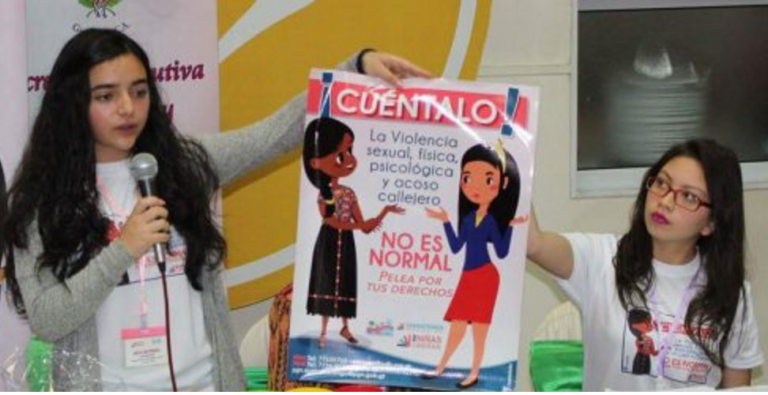
In the News
What’s Next in the Fight to End Child Marriage in Guatemala?
-
Focus Areas
Global Health, Women, Youth & Children -
Issues
Reproductive & Sexual Health -
Programs
Rise Up

Guatemala has taken a huge step forward for girls, officially outlawing child marriage following years of advocacy by activists and girl leaders.
New legislation closes a major loophole in the law, a major victory for girls in a country that has one of the highest rates of child marriage in Latin America. According to Unicef, 30 percent of girls are married by 18 years of age in Guatemala. Most common among Mayan indigenous communities, child marriage is driven by poverty, tradition and lack of education and economic opportunities.
Previously in Guatemala, the minimum age for marriage was 16 for boys and 14 for girls. Adolescent girls in Guatemala are the main victims of sexual violence and exploitation, child marriage being one of its forms. Forced into early marriages, girls’ basic rights were flagrantly violated. Child brides are not allowed to make decisions over their bodies and their futures and aren’t given the opportunity to live to their full potential.
Starting in 2013, Rise Up began investing in girl-led advocacy to pressure Guatemalan law makers to increase the minimum age of marriage to 18 years. One of Rise Up’s main partners and grantee in this effort was APROFAM (Pro-Family Association of Guatemala), who was trained in Rise Up’s Let Girls Lead girl centered methodology, to meaningfully engage adolescent girls in direct advocacy with law makers. APROFAM and Rise Up’s country staff played a key role in bringing girls to the table with decision makers, sharing their experiences and dreams for their future and advocating for their right to delay marriage. This campaign led to the first big step towards banning child marriage in Guatemala, a law that increased the legal age of marriage to 18 in November 2015.
However, a major loophole in the law allowed for girls and boys 16 to 18 years old to be legally married with the consent of a family judge. Conditions to qualify for the loophole were easily met, and between November 2015 and August 2017, 2,221 child marriages were registered by the National Registry (RENAP). Over seventy five percent of these marriages were between adolescent girls and adult men.
But girl leaders and civil society activists refused to give up, continuing in their fight to end child marriage. A strong and strategic civil society advocacy network was already in place, and activists began strategizing immediately to close the loophole. The Adolescent Girls Working Group, or Mesa a favor de las Niñas y Adolescentes in Spanish, a network of community based organizations and international nonprofits, including Rise Up grantees and country staff, partners and allies still had other battles to fight, and got to work immediately to ensure that no child would be forced into marriage.
Originally published by Ms. Magazine
More Updates


Safeguarding the Health and Wellbeing of Agricultural Workers in Monterey County: A 5-Year Glance at the COVID Pandemic & Lessons Learned

New Study Reveals Why Alcohol Use Increased During the Pandemic

PHIL Collective: Tools, Training and Resources for Collaborative, Cross-Sector Efforts to Improve Health and Equity
Work With Us
You change the world. We do the rest. Explore fiscal sponsorship at PHI.
Support Us
Together, we can accelerate our response to public health’s most critical issues.
Find Employment
Begin your career at the Public Health Institute.
